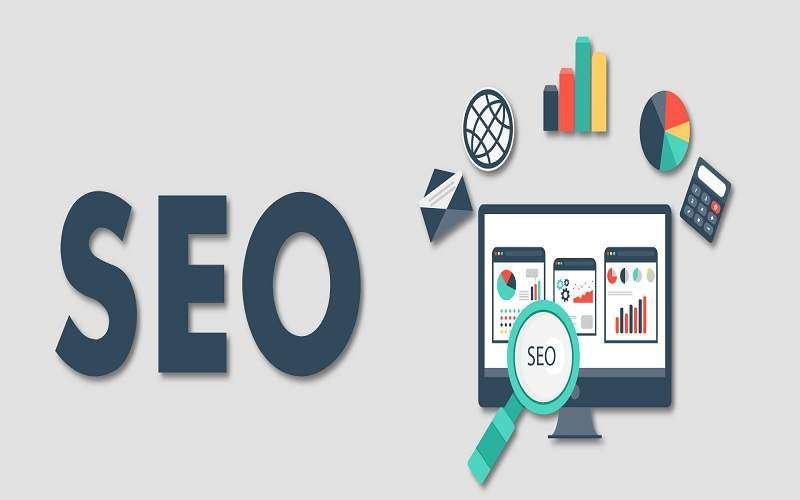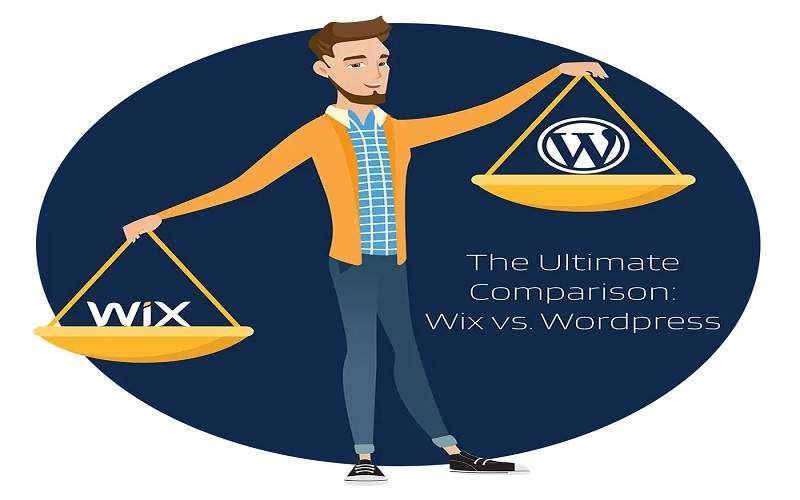
WordPress vs Wix – Which is Better? (Latest Comparison)
WordPress vs. Wix: Unraveling the Battle of Website Builders
In the digital age, having a strong online presence is crucial for businesses and individuals alike. Building a website is the first step towards establishing that presence.
When it comes to website builders, WordPress and Wix are two popular options that often dominate the conversation. We have also written a comprehensive guide on how WordPress works and the two different types of WordPress.

In this blog post, we will explain the key reasons why WordPress is considered a superior choice compared to Wix, particularly for those seeking flexibility, scalability, and customization options.
What is the main difference between WordPress and Wix?
-
Flexibility
WordPress is an open-source platform, which means it provides users with endless possibilities to customize their websites.
With thousands of themes and plugins available, users have the freedom to create unique and tailored websites that match their specific needs.
Whether you’re a blogger, small business owner, or an e-commerce entrepreneur, WordPress offers the flexibility to adapt and evolve as your website grows.

Wix, on the other hand, provides a more templated approach. While it offers a wide range of visually appealing templates, customization options are more limited.
Wix’s drag-and-drop interface is user-friendly but restricts the level of customization, making it challenging to create a truly personalized website.
-
Scalability
As your website expands, scalability becomes crucial. WordPress excels in this aspect due to its extensibility and robust content management system (CMS).
With WordPress, you have the ability to add new features, plugins, and integrations seamlessly, allowing your website to grow alongside your needs.

Whether you want to integrate an e-commerce platform, implement advanced SEO techniques, or add membership functionality, WordPress offers a vast ecosystem of tools to accommodate your requirements.
While Wix does offer some scalability, it has inherent limitations.
As your website grows, you may find yourself outgrowing Wix’s infrastructure, leading to potential challenges in implementing advanced features or integrations.
-
Search Engine Optimization (SEO)
WordPress is widely regarded as the more SEO-friendly option. It offers a range of plugins, such as Yoast SEO, that simplify the optimization process.
TRENDING POST: Will WordPress Replace Web Developers?
These plugins enable users to optimize their website’s meta tags, keywords, and content structure easily. WordPress also provides better control over URL structures, allowing for cleaner and more search engine-friendly URLs.

Wix has made significant strides in improving its SEO capabilities, but it still falls short of WordPress in this regard.
Wix’s rigid URL structure and limited control over meta tags and content organization may hinder your website’s search engine visibility.
-
Ownership and Portability
One significant advantage of WordPress is that you own your website entirely. You have complete control over your data, files, and hosting choices.
This level of ownership ensures that your website remains portable, meaning you can migrate it to a different hosting provider if desired.
This freedom allows for greater flexibility and safeguards your investment in case you outgrow your current hosting solution.

Wix operates on a subscription-based model, which means you don’t have full control over your website.
If you decide to switch to a different platform or hosting provider, you may face challenges in transferring your content and design elements seamlessly.
-
Monetization Opportunities
Another significant advantage of WordPress over Wix is the extensive range of monetization options available.
Whether you’re a blogger, content creator, or online business owner, WordPress provides numerous avenues to generate revenue from your website.
WordPress offers seamless integration with various advertising networks, such as Google AdSense, allowing you to monetize your website through display ads.

You can strategically place ads within your content or in designated ad spaces on your website.
Moreover, WordPress provides robust e-commerce capabilities through plugins like WooCommerce, which transforms your website into a fully functional online store.
This allows you to sell products, digital downloads, and even services directly from your website, opening up additional revenue streams.
Additionally, WordPress supports membership sites through plugins like MemberPress or Restrict Content Pro. This enables you to offer premium content, courses, or exclusive services to your subscribers, generating recurring income.
On the other hand, Wix offers more limited monetization options. While it does provide a built-in e-commerce solution, it may not offer the same level of flexibility and advanced features as WordPress.
The monetization opportunities on Wix are more confined to basic online store functionality and may not cater to the diverse needs of advanced e-commerce businesses or content creators.
Conclusion
While Wix can be a suitable option for beginners or those who prioritize ease of use, WordPress outshines it in terms of flexibility, scalability, customization, monetization options, SEO capabilities, and ownership.

With its vast plugin and theme ecosystem, open-source nature, and unparalleled community support, WordPress empowers users to create professional, dynamic, and highly functional websites that can adapt and evolve with their needs.




Post Comment